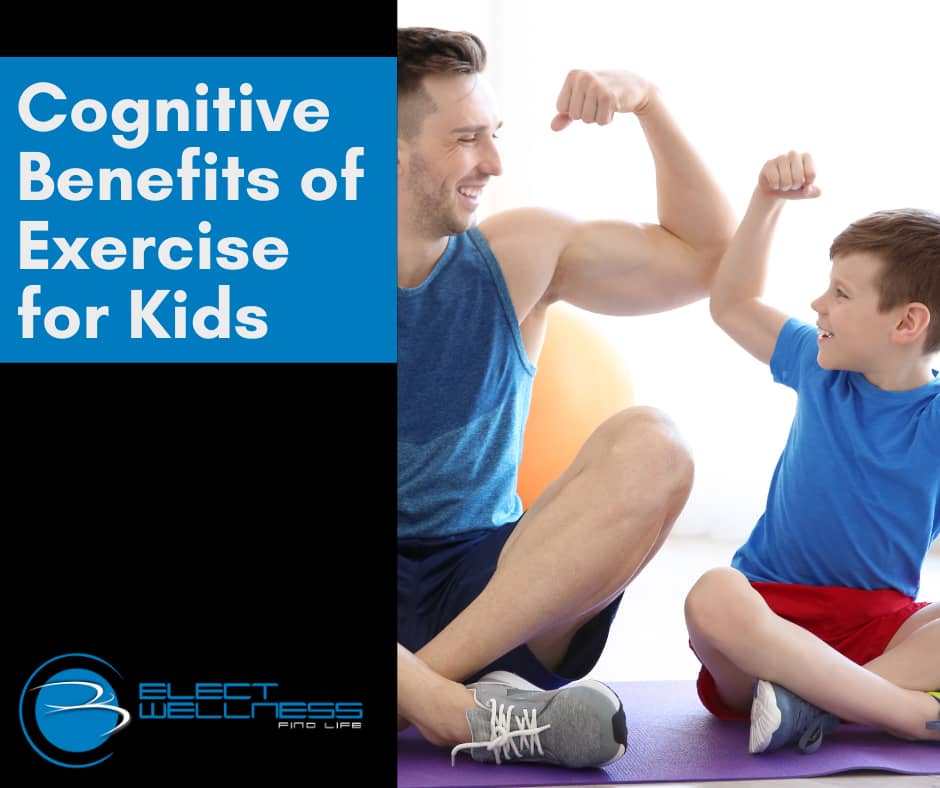
In today’s digital age, where children are increasingly drawn to screens and sedentary activities, the importance of regular exercise cannot be overstated. While the physical benefits of exercise are well-documented, its cognitive advantages for children are equally significant. From improved focus and academic performance to enhanced mood and overall well-being, engaging in regular physical activity offers a multitude of benefits for young minds. Let’s delve into the cognitive benefits of exercise for kids and explore why it’s crucial to prioritize movement in their daily routines.
Enhanced Cognitive Function
Exercise has been shown to have a profound impact on cognitive function in children. Physical activity increases blood flow to the brain, delivering oxygen and nutrients essential for optimal brain health. Moreover, exercise stimulates the release of neurotransmitters such as dopamine and serotonin, which play key roles in regulating mood, attention, and learning. Studies have consistently demonstrated that children who engage in regular physical activity exhibit better cognitive abilities, including improved memory, problem-solving skills, and academic performance.
Improved Focus and Attention
One of the most significant cognitive benefits of exercise for kids is its ability to enhance focus and attention. Physical activity triggers the release of brain-derived neurotrophic factor (BDNF), a protein that promotes the growth and development of neurons. This process is particularly important in areas of the brain responsible for attention and executive function. By stimulating neural growth, exercise helps children stay focused, alert, and better able to concentrate on tasks both in the classroom and at home.
Reduced Stress and Anxiety
In today’s fast-paced world, stress and anxiety are increasingly common among children. However, regular exercise offers a natural and effective way to alleviate these negative emotions. Physical activity stimulates the production of endorphins, often referred to as “feel-good” hormones, which help reduce stress and anxiety levels. Additionally, exercise provides a healthy outlet for pent-up energy and frustration, promoting emotional well-being and resilience in children.
Enhanced Brain Plasticity
Brain plasticity, also known as neuroplasticity, refers to the brain’s ability to adapt and reorganize itself in response to experiences and environmental factors. Exercise plays a crucial role in promoting brain plasticity by creating an optimal environment for learning and development. Physical activity stimulates the formation of new neural connections, strengthening existing pathways and enhancing cognitive flexibility. This increased brain plasticity not only improves learning and memory but also enables children to adapt more effectively to new challenges and experiences.
Promotion of Healthy Sleep Patterns
Quality sleep is essential for cognitive function and overall well-being in children. Regular exercise helps regulate sleep patterns by promoting the release of melatonin, a hormone that regulates the sleep-wake cycle. Moreover, physical activity tires the body and mind, making it easier for children to fall asleep and enjoy deeper, more restorative rest. By establishing healthy sleep habits early on, exercise contributes to improved cognitive function, mood regulation, and academic performance in children.
Improved Self-Esteem and Confidence
Self-esteem plays a crucial role in children’s cognitive and emotional development, influencing their confidence, resilience, and overall well-being. Exercise has been consistently linked to improved self-esteem in children, fostering a positive self-image and sense of accomplishment. Participation in physical activities allows children to set and achieve goals, overcome obstacles, and experience tangible progress over time. Whether mastering a new skill, completing a challenging workout, or winning a game, each accomplishment contributes to a child’s sense of competence and self-worth.
Prioritizing Movement for Young Minds
The cognitive benefits of exercise for kids are undeniable. From enhanced cognitive function and improved focus to reduced stress and anxiety, regular physical activity offers a multitude of advantages for young minds. By prioritizing movement and providing ample opportunities for exercise, parents, educators, and policymakers can support the cognitive development and overall well-being of children. In a world increasingly dominated by screens and sedentary activities, let us recognize the importance of fostering a healthy mind-body connection through regular exercise and physical activity.

Thomas C. Jensen is an exercise physiologist, nutritionist, and a nationally certified personal trainer through both the National Strength and Conditioning Association and the National Academy of Sports Medicine. He is a summa cum laude graduate of Harding University and a member of the Alpha Chi National Honor Society. As a wellness speaker and franchisor, he has shared his expertise in health and fitness with diverse audiences. He has been professionally training and consulting clients of all ages and backgrounds, for both health and human performance, for over 20 years. In March of 2004, he launched Elect Wellness, a thriving home-delivered personal training and nutrition coaching company, which has since expanded into an effective franchise system.



























